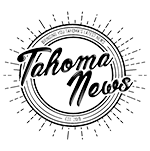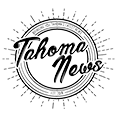Black Excellence
March 2, 2022
Black History Month is coming to an end and with that, I would just like to speak about what Black History Month is and acknowledge some Black icons that have had a big influence on the way African Americans live today. Black History Month is all about the celebration of African American culture and the achievements our ancestors have accomplished. Since 1976, all Presidents of the United States have officially set the month of February as a month of black history.
According to history.com “The story of Black History Month begins in 1915, half a century after the Thirteenth Amendment abolished slavery in the United States. That September, the Harvard-trained historian Carter G. Woodson and the prominent minister Jesse E. Moorland founded the Association for the Study of Negro Life and History, an organization dedicated to researching and promoting achievements by Black Americans and other people of African descent.”
Most people probably didn’t know this information and I’m going to be honest, I didn’t know it either. You can say you stand for Black Rights and support Black History Month all you want, but until you are educated about the culture and the history of African Americans you can’t say that you understand Black people. That very reason is why I am writing this article: to educate other people and to also get more information and learn more about my people and my culture. There are so many things about this topic I want to cover, however there is not nearly enough time for that. So please enjoy the new knowledge you are getting and please try to have a better understanding of what it means to be a Black person in America.
Starting off, I would like to talk about the history of African Americans, but not the school version because let’s be honest, most teachers avoid the heavy stuff about what African Americans go through. They just talk about slavery and how that was a hard time, but they don’t talk about the depressing stuff because schools avoid those topics to avoid conflict. But sometimes you have to have the hard conversations and stir the pot and educate us young people about what the world was really like, not the censored version.
For example, did you know Carter G. Woodson was the son of former enslaved Africans James and Eliza Riddle Woodson. He gained a master’s degree at the University of Chicago in 1908, and in 1912, he received a Ph.D. in history from Harvard University. Woodson, known as the “Father of Black History” started Negro History week in 1926, which later became Black History Month.
Another example might be Actor Morgan Freeman, who says a month dedicated to Black history is “ridiculous.” In a 2005 interview on ”60 Minutes,” Freeman said, “You’re going to relegate my history to a month? I don’t want a Black history month. Black history is American history.” Adding on to that, I find it interesting how Black History Month is the shortest month in the entire year and yes, you may be thinking, “At least you have a month dedicated to your culture,” but that isn’t the point. Yes, we have a month dedicated to us, but why does Black History Month only get to be celebrated for 28 days while other ethnicities might get 31 days. I’m going to leave you all to ponder that a moment. You can find out more information and facts like these at 15 Rare Black History Facts You’ve Never Heard.pdf (blackhistorynow.com).
Let’s go over some African customs and yes, I know I have already said a lot of information so far but just stick with me a little bit longer and we can all get more educated. For instance, during Black History Month, you will most likely see quite a few African Americans wearing clothing that is colorful with different patterns on it and that is called dashiki which is a bright-colored unisex piece of clothing worn in west Africa. For lots of Africans, it signifies traditional apparel and for Africans in the diaspora, it is a way to connect with one’s African roots or heritage. There are also common traditions and food. For example, in African culture weddings happen at night fall, and some common food might be plantains (which are like sweet bananas), jerk chicken, and piri piri chicken and much more.
Although knowing African American culture is important, it is just as important to know some people who had a big impact of what life for black people is like today and not just the most basic ones that everyone know. I’m willing to bet money that when I said Black idols you were thinking of Rosa Parks and Martin Luther King Jr. Yes, those are very important people, but there are other people who are just as important. For example, Frederick Douglass a former slave, became a leading figurehead in the anti-slavery movement. One of the most prominent African American leaders of the Nineteenth Century. His autobiography of life as a slave, and his speeches denouncing slavery were influential in changing public opinion.
However, Douglass is not the only one, there is also Angela Davis who once said, “We know the road to freedom has always been stalked by death.” She is a professor, scholar, political activist, and author with the best afro I have ever seen.
In conclusion, you can say you aren’t racist or you stand for black rights but you don’t have to pull a fire house on a black person or say the n word to be racist. I mention this because numerous people at our school say that word and I let’s be clear, if you are not black do not say it. Ever. There the less incendiary ways that exhibit racism. The weird look given to a black person or the bad service at a restaurant or when the obligatory class discussion of slaver is happening and heads turn to the one black student as if that individual holds all the answers and representation, these are acts of racism.
So, let’s all take a moment to learn about African American culture and what it means to be a black person in America.


